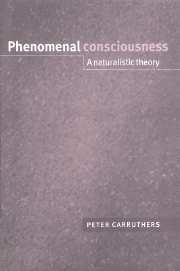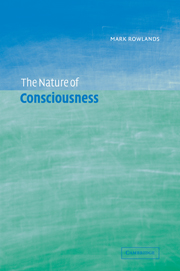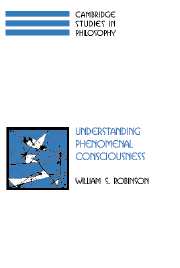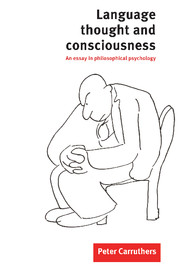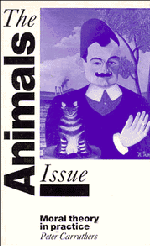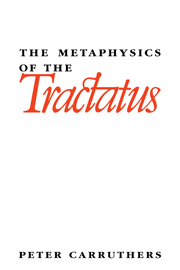Phenomenal Consciousness
How can phenomenal consciousness exist as an integral part of a physical universe? How can the technicolor phenomenology of our inner lives be created out of the complex neural activities of our brains? Peter Carruthers argues that the subjective feel of our experience is fully explicable in naturalistic (scientifically acceptable) terms, and draws on interdisciplinary resources to develop and defend a novel account in terms of higher-order thought. Phenomenal Consciousness is essential reading for all those in philosophy and the cognitive sciences who are interested in the problem of consciousness.
- Develops a novel solution to a problem that is now of central concern to many in the cognitive sciences
- Surveys all the main arguments and theories in the area
- Clearly and accessibly written
Reviews & endorsements
'Carruthers' book is a marvellous and wide-ranging critical introduction to the problem of conciousness from a representational theory point of view … Carruthers also develops and defends a highly original version of the representational theory of consciousness which boasts a remarkable degree of depth and precision … an intriguing and original addition to the growing range of representational theories of consciousness, which is the most exciting area in consciousness studies at the moment … Carruthers' book is now an essential part of the literature in this area.' William Seager, University of Toronto
'Carruthers' new book is a welcome addition to the extensive literature on phenomenal consciousness … Carruthers has written a rich and rewarding book … the level of argumentation is consistently high, and a wide range of empirical evidence is brought to bear … no one working in the philosophy of mind and/or psychology can afford to ignore it.' The Philosophical Quarterly
' … compulsory reading for anyone interested in the comtemporary philosophical and scientific debate over the nature of phenomenal consciousness.' An Interdisciplinary Journal of Research on Consciousness
Product details
October 2000Hardback
9780521781732
368 pages
229 × 152 × 24 mm
0.71kg
Available
Table of Contents
- 1. Assumptions, distinctions, and a map
- 2. Perspectival, subjective, and worldly facts
- 3. Explanatory gaps and qualia
- 4. Naturalisation and narrow content
- 5. First-order representationalism
- 6. Against first-order representationalism
- 7. Higher-order representationalism: a first defence
- 8. Dispositionalist higher-order thought theory (1): function
- 9. Dispositionalist higher-order thought theory (2): feel
- 10. Phenomenal consciousness and language
- 11. Fragmentary consciousness and the Cartesian theatre.

